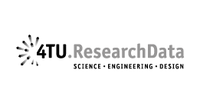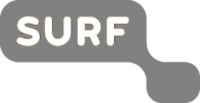A good data management strategy takes into account technical, organisational, structural, legal, ethical and sustainability aspects. The time invested in setting up a good data management strategy pays off when the time comes to reproduce your analysis and results. You will be able to easily find and understand your data, increase your data's reuse potential and comply with funder mandates at the same time | CESSDA, 2017/2018
A data management plan (DMP) anticipates potential challenges in collecting, managing and sharing research data at an early stage and identifies measures to improve data reproducibility and FAIRness. In this section we will discuss the why, what and how of DMPs, look at the requirements of research funders and review a number of DMP tools.
The advantages of a DMP
Filling in a DMP is a good way to think about the data collection process in a structured way. You answer questions such as (DCC, 2013):
- What data are you going to collect or create? And with what method?
- How will you document the data?
- How will any ethical issues be addressed?
- How will you protect the privacy of any research participants?
- How do you ensure that data is stored securely and cannot be lost?
- What is the plan for the long-term storage of the dataset? Are you going to publish the data?
- Who is responsible for data management?
Filling out a DMP - and then complying with and keeping the content alive - has a number of advantages. It increases the chance:
- Of FAIR data;
- Of reproducible research;
- That you comply with relevant legislation such as the GDPR;
- Of research efficiency.
In the video below, we'll give you a more detailed overview of what a DMP is, what its advantages are and you'll get to see an example of a format and a completed DMP.
RDNL-Video about the what, why and how of data management planning; use HD quality for the best viewing experience.
DMP tools
There are several online tools or applications available that can be used to work on a DMP. An advisory report by LCRDM (2018) compares three of them:

- DMPonline (DCC, n.d.)
- RDMP Webtool (Rijksuniversiteit Groningen, n.d.)
- ELIXIR Data Stewardship Wizard (ELIXIR, n.d., a domain-specific DMP generator which originates from the life sciences).
The report contains recommendations for data supporters who are involved in offering DMP advice to researchers within their own institution. According to the authors, the advantages of an online application are:
- The DMP is easy to manage (version management, working with multiple authors);
- The DMPs are stored centrally;
- Automatic links with other systems, such as a CRIS system, are possible (or will become possible in the future).
Of the institutions in the Netherlands that have already started implementing DMP Online, the majority of them have placed their institutional template, a DMP template that is tailored to their own organisation, in the DCC environment.
A fourth online DMP tool that is available is easy.DMP by Eudat (Eudat, n.d.).
DMP policy of research funders
Research funders usually expect that awareness of data management is part of the project application. The underlying motive of research funders is to promote honest research and FAIR research data. They are of the opinion that research data, produced as part of a publicly funded research project, should at least be traceable and preferably be freely available for reuse and verification.
Below you will find some examples of research funders and their data management requirements. These institutions usually provide this information directly to researchers, but as a data supporter you can expect questions from researchers about it.

In the spotlight
Questionnaire on data management from GESIS
GESIS (n.d.) developed a clear questionnaire with 'Research Data Management Questions' to go through before you write a DMP.
Examples of filled-in DMPs
- A list with filled-in DMPs by DCC (n.d.c).
Guidance for setting up discipline-specific DMP templates (Science Europe)
To date, there is a wide variety of DMP templates from funders, institutions, countries and disciplines, with little coordination on how much detail is needed or useful. The needs of researchers and organisations differ depending on the discipline and type of research. There is no one-size-fits-all approach to research data management. To support disciplines in setting up discipline-specific DMP templates, Science Europe published a guidance document (Science Europe, 2018).
The role of a DMP in managing project information and contributing to integrity and reproducibility
The Data Management Expert Guide contains a section on the role of a DMP in project management (CESSDA, 2017/ 2018). It states that project management becomes easier if you also include administrative information in the DMP, such as the names and ORCIDs of the principal investigator(s) and project members, registration numbers for funding, approvals from the ethics committee, etc. Data documentation such as logbooks, code lists, technical reports and other documents can also be referred to in a DMP, along with information about the location of these documents. This makes the DMP a central place from where all relevant information can be accessed. In this way, the DMP contributes to scientific integrity and reproducibility.

Sources
Click to open/close
CESSDA (2017/2018). Data Management Expert Guide. https://www.cessda.eu/Training/Training-Resources/Library/Data-Management-Expert-Guide
DCC (2013). Checklist for a Data Management Plan. v.4.0. Edinburgh: Digital Curation Centre. Available online: http://www.dcc.ac.uk/resources/data-management-plans
DCC (n.d). DMP Online. https://dmponline.dcc.ac.uk/
ELIXIR (n.d.). Data Stewardship Wizard. https://ds-wizard.org/
EUDAT (n.d.). easy.DMP. https://easydmp.eudat.eu/
European Commission. (2016). H2020 Programme. Guidelines on Data Management in Horizon 2020. http://ec.europa.eu/research/participants/data/ref/h2020/grants_manual/hi/oa_pilot/h2020-hi-oa-data-mgt_en.pdf
European Research Council (2019). Open Research Data and Data Management Plans Information for ERC grantees. https://erc.europa.eu/sites/default/files/document/file/ERC_info_document-Open_Research_Data_and_Data_Management_Plans.pdf
Gesis (n.d.). Research data management questions. Retrieved from www.gesis.org/fileadmin/upload/trainingcenter/images__documents/Research_data_management_questions.pdf
KNAW (n.d.). How does the academy deal with its research data? https://www.knaw.nl/en/topics/openscience/opendata?set_language=en
Landelijk Coördinatiepunt Research Data Management (LCRDM) Werkgroep Ondersteuning & Advies, subwerkgroep DMP (Februari 2018). Advice: online applications for data management plans (DMP’s). https://www.lcrdm.nl/files/lcrdm/2019-04/LCRDM%20Advice%20online%20applications%20for%20a%20DMP%20tool.pdf
Leiden University (2016). Research Data Management Regulations Leiden University. https://www.bibliotheek.universiteitleiden.nl/binaries/content/assets/ul2ub/research--publish/research-data-management-regulations-leiden-university_def.pdf
NWO (n.d.) Open (FAIR) data. https://www.nwo.nl/en/policies/open+science/data+management
Rijksuniversiteit Groningen (n.d.) RDMP Webtool. https://www.rug.nl/research/research-data-management/tools-services/rdmp/rdmp-web-tool
Science Europe (2018). Science Europe Guidance Document. Presenting a Framework for Discipline-specific Research Data Management. https://www.scienceeurope.org/wp-content/uploads/2018/01/SE_Guidance_Document_RDMPs.pdf
Vermeulen, L., (2013). Data management plan. Retrieved from http://www.wageningenur.nl/web/file?uuid=4c3b23ee-02ee-4819-b555-988c23deca44&owner=7e5add26-d3a7-4118-aed0-a55dbb7d892e
ZonMw (n.d.). Data management in your project. https://www.zonmw.nl/en/research-and-results/fair-data-and-data-management/data-management-in-your-project/





